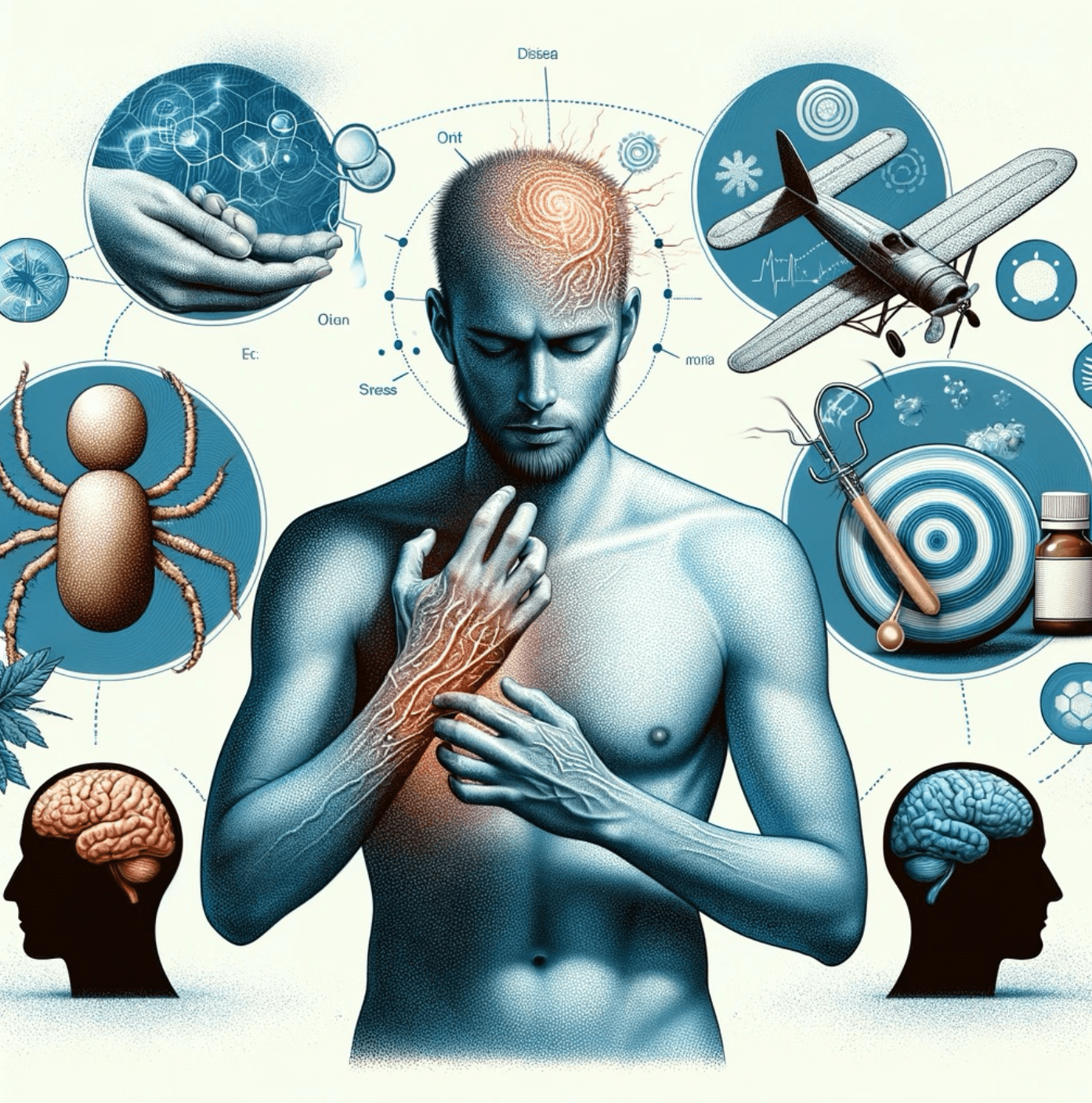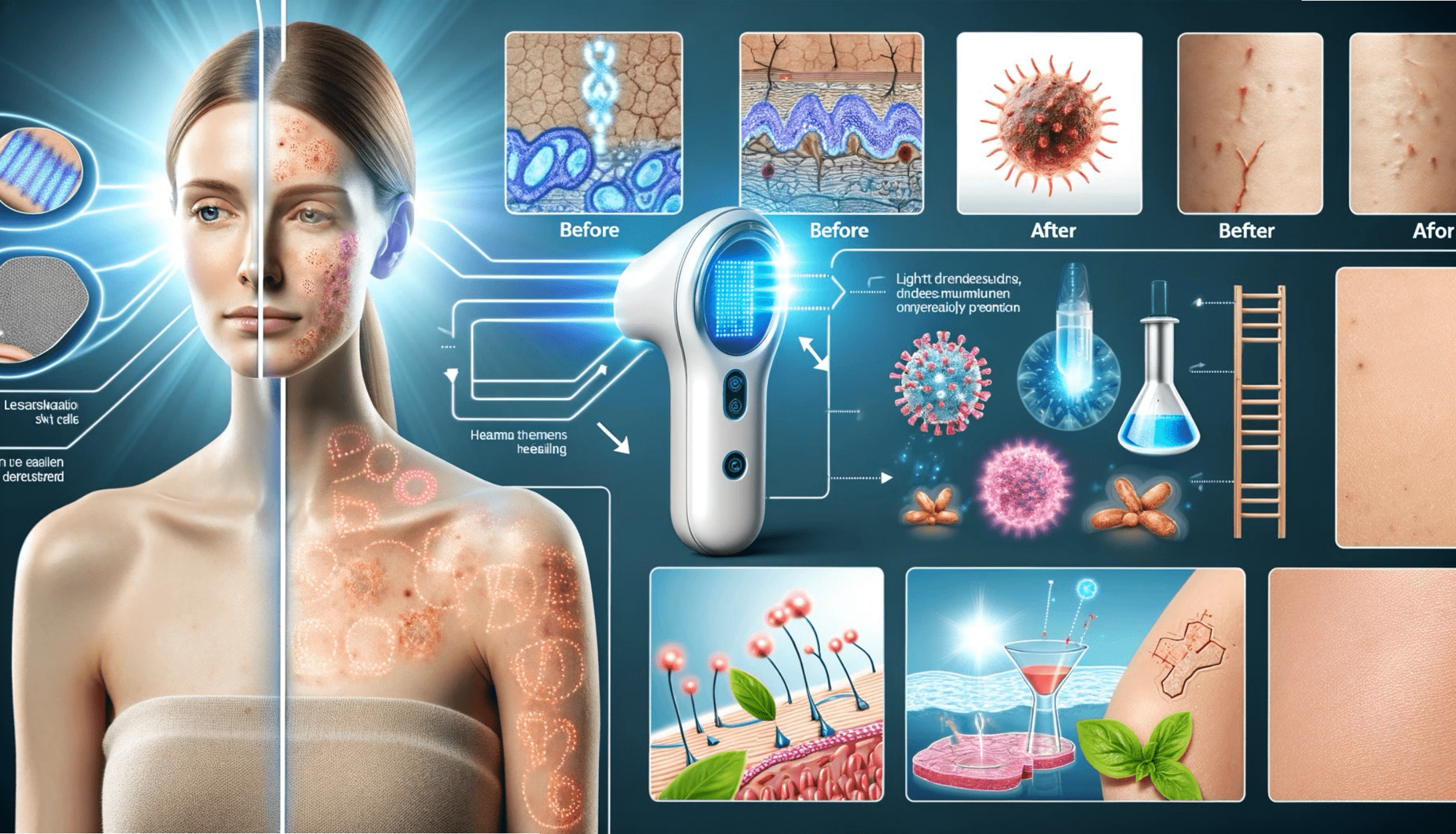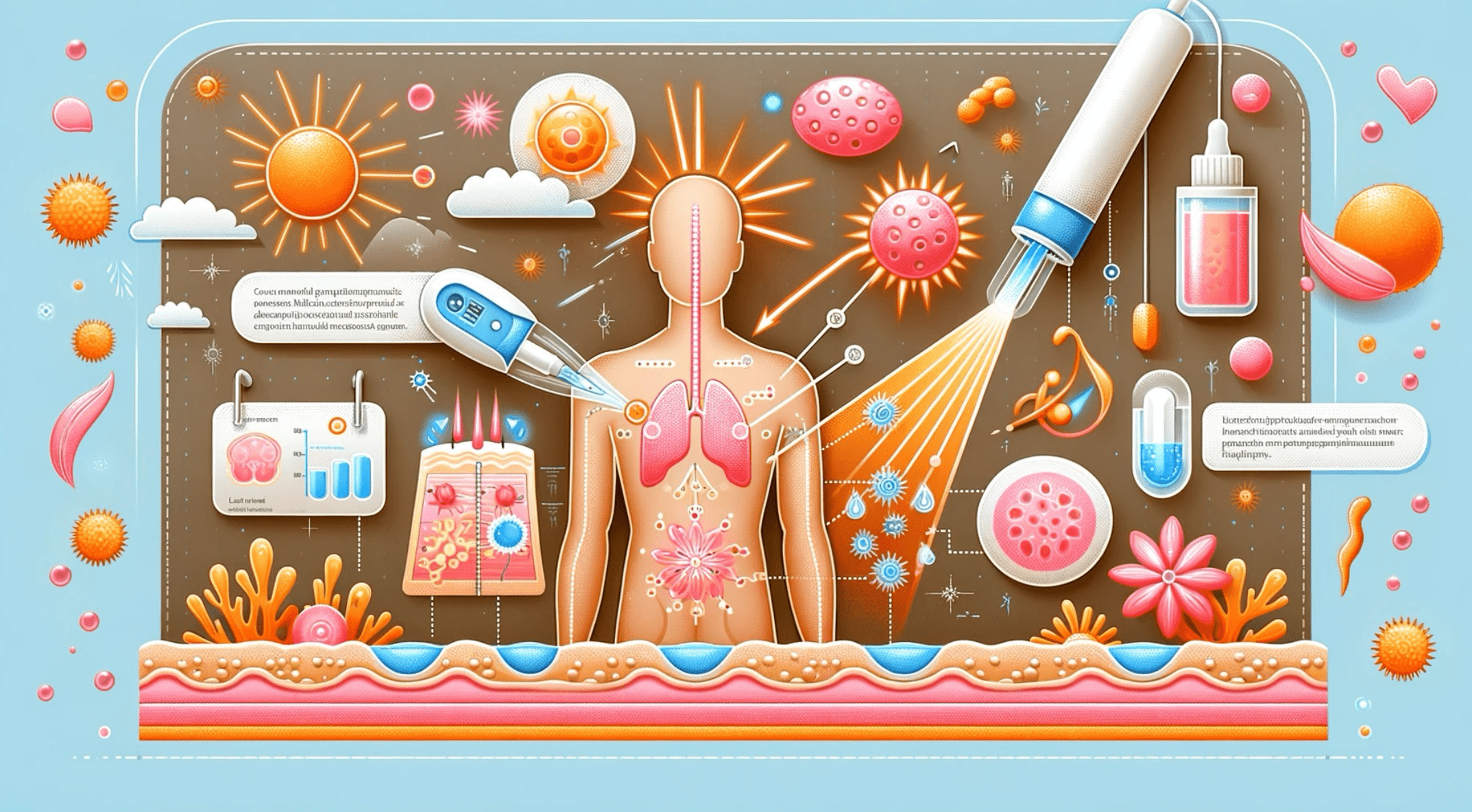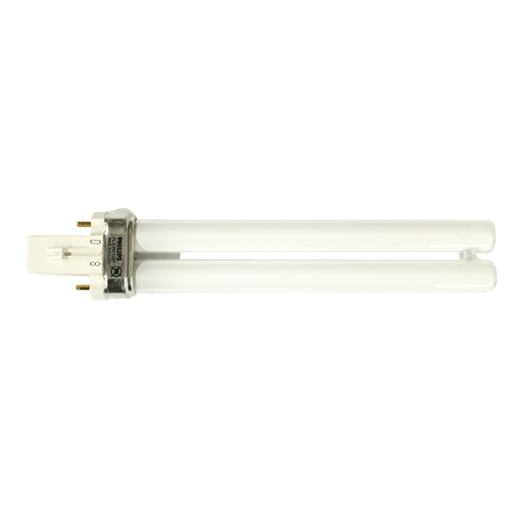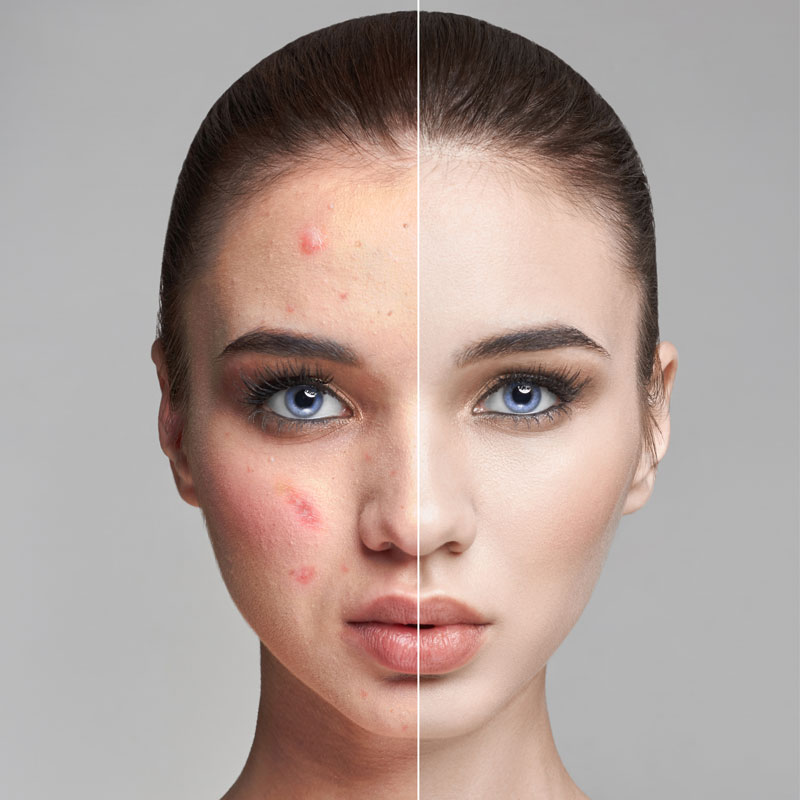Atopic Dermatitis: Trigger Factors and UVB Treatment
Revolutionize Dermatitis Treatment with UVTREAT
Experience the relief you’ve been seeking from dermatitis with UVTREAT’s innovative UVB Phototherapy device. Designed for home use, our device offers a convenient and effective solution to the persistent discomfort of rashes, itchy skin, and swelling. Say goodbye to the hassle and expense of frequent dermatologist visits and embrace the comfort of treating your skin condition from home.
Understanding the Triggers of Dermatitis
Atopic Dermatitis (AD), commonly known as eczema, affects a substantial portion of the population, with recent studies indicating that nearly 15-20% of children and 1-3% of adults worldwide are affected (Smith et al., 2021). This condition can stem from a variety of sources, making it a complex issue to tackle.

- Environmental Allergens: Environmental factors play a significant role in triggering AD. Pollutants and allergens like dust mites, pet dander, pollen, and molds have been identified as key exacerbators (Johnson & Lee, 2022). For instance, dust mite allergens are known to significantly increase the risk of eczema flare-ups in sensitive individuals (Dermatology Association, 2023).
- Food Allergies: The link between food allergies and AD is particularly strong in children. Foods such as cow’s milk, peanuts, eggs, soy, and wheat are common triggers. Studies show that approximately 30% of children with AD have one or more food allergies (Pediatric Research Institute, 2024).
- Hormonal Imbalance: Hormonal changes, particularly during phases like menopause or andropause, can influence the severity of AD. Research indicates that hormonal fluctuations can exacerbate symptoms, with some women experiencing worsening of AD symptoms during these periods (Global Dermatology Forum, 2022).
- Stress: Stress is a significant factor in the flare-up of AD. Psychological stress can weaken the immune system and aggravate skin conditions. It has been observed that stress can lead to increased inflammation and a subsequent worsening of eczema symptoms (Health and Mind Institute, 2023).
Our guide aims to demystify these factors, offering insight into this widespread condition and helping you better manage and prevent flare-ups.
Summarized: What Causes Atopic Dermatitis?
Atopic Dermatitis, also known as eczema, is a common skin condition that affects nearly 16.5 million adults in the USA. Although the exact cause of dermatitis is not fully understood, it is likely to be caused by a combination of the following:







